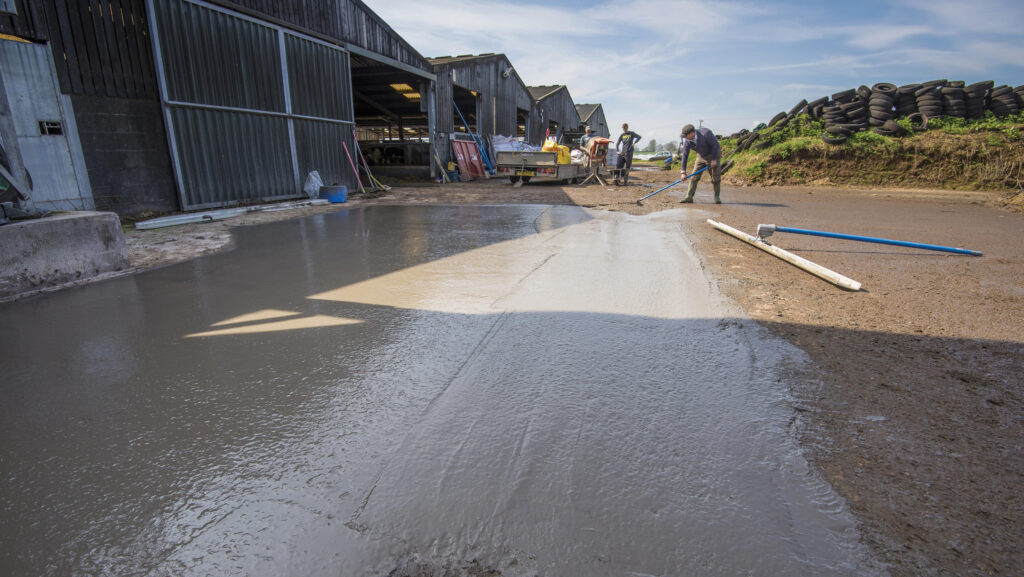Farm tax: Opportunities, deadlines and updates
 © FLPA/Alamy Stock Photo
© FLPA/Alamy Stock Photo There is currently a mix of opportunities, deadlines and changes relating to tax for farm businesses.
We find out what to be aware of when dealing with your tax responsibilities and get some tips on tax relief.
See also: Business Clinic – tax advice on farm sale and machinery disposal
Option to accrue for infrastructure repairs
Many farmers overlook that they can make an accrual in their year-end accounts and get tax relief in that year for expenditure that is due, but which won’t be incurred until the following year.
Peter Griffiths, tax director at accountant Hazlewoods, gives the example of a business with a 31 March year-end which needs to have a yard concreted at a cost of £100,000.
“You wouldn’t want to do that in February just to get the expenditure in before the end of the year, but you can accrue for it in the 31 March 2025 accounts and then get the work done in May or June, for example,” he says.
“It has to be something that is going to be done and where there is a genuine commitment to do the work by the end of the following year.
“You can’t keep rolling it forward, and need an accurate a quote for the work,” advises Peter.
The ability to accrue in this way applies typically to infrastructure repairs, such as buildings and yards, rather than machinery or other repairs, he says.
Cost of late tax payments rises
HMRC’s interest rate on late tax payments rose by 1.5% on 6 April 2025.
Prior to 6 April, the rate was the Bank of England base rate (currently 4.5%) plus 2.5%. It now stands at base rate plus 4%, which means a rate of 8.5% for most taxes.
The rate for late-paid quarterly corporation tax instalments rose on 6 April from base rate plus 1% to base rate plus 2.5%, giving an effective rate of 7%.
The interest on tax repayments by HMRC is unchanged, at base rate minus 1%, with a lower limit of 0.5%. The base rate will be reviewed again on 8 May.
Tax on company-owned houses
Farmhouses and other dwellings that are company owned may need to claim relief from payment of the Annual Tax on Enveloped Dwellings regime.
Returns for 2025-26 are due by the end of April for qualifying property that was company owned on 1 April this year.
Charges currently start at £4,450 a year for properties worth £500,000-£1m. Those valued at less than £500,000 are not subject to the charge.
Relief is available where houses are occupied by a working farmer and for properties owned by trading companies and used by employees in the trade.
Benefits in kind – P11D deadline approaches
Taxable benefits in kind (BIKs) provided to employees must be reported on forms P11D and P11D(b).
Benefits in kind include anything of monetary value provided to an employee that is not “wholly, exclusively and necessary” for their job.
Most farmworker benefits such as accommodation and vehicles (where the use is solely for business or with only incidental private use) are exempt.
However, accountants advise employers to check whether they need to report anything.
There are instances where BIKs are chargeable if they exceed a certain proportion of pay.
For the 2024-25 tax year forms P11D and P11D(b) must be submitted to HMRC by 6 July 2025 and employees must be provided with a copy of their form P11D by the same date.
Employers’ Class 1A national insurance contributions (NICs) are due at 13.8% for 2024-25 where these benefits are taxable, and the Class 1A NICs owed should be reported on form P11D(b).
Payments must be made by 22 July 2025 if paying online, or by 19 July 2025 if paying by cheque.
The NICs rate rises to 15% for the 2025-26 tax year.
